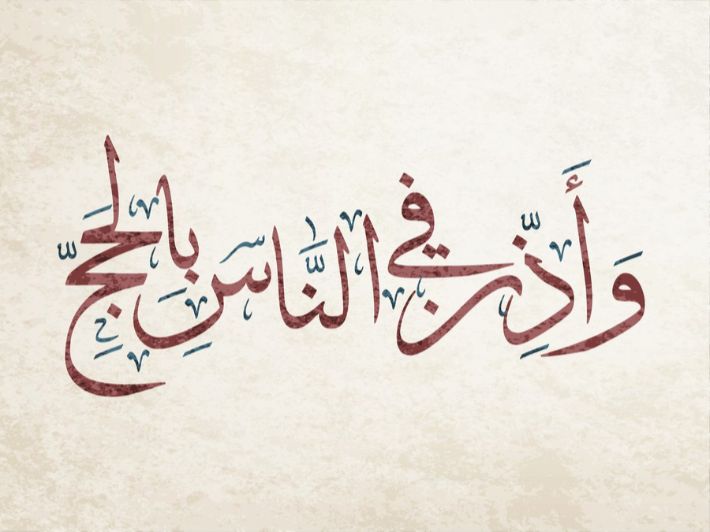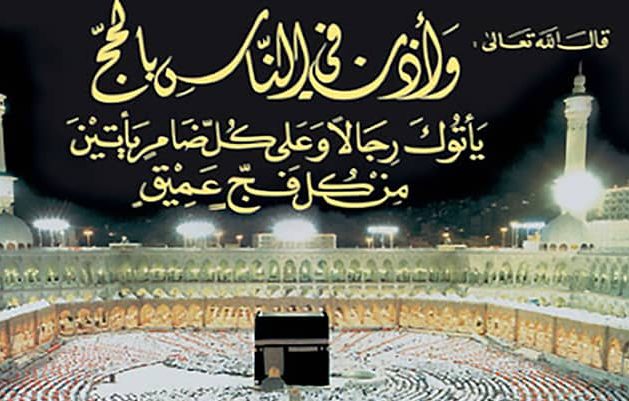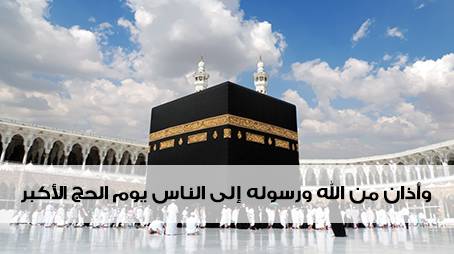Hajj, the annual pilgrimage to Mecca, is a fundamental pillar of Islam and holds great significance in the lives of Muslims. It is a journey that transcends geographical boundaries, uniting millions of believers in a spiritual and communal experience. The Quran, the holy book of Islam, extensively emphasizes the importance of Hajj, providing guidance and principles for this sacred ritual. In this article, we introduce you some aspects of Hajj in Quran view.

Historical Context: Hajj in Quran view
The roots of Hajj trace back to the time of the Prophet Ibrahim (Abraham) and his son Isma’il (Ishmael). The Quran narrates the construction of the Kaaba, the sacred house of worship in Mecca, by Ibrahim and Isma’il, laying the foundation for the rituals performed during Hajj. The Quranic verses recount the divine commandments given to Ibrahim, underscoring the symbolic and spiritual significance of the pilgrimage.
Quranic Verses Highlighting Hajj: Hajj in Quran view
1. Surah Al-Baqarah (2:196):
“And complete the Hajj and Umrah for Allah. But if you are prevented, then [offer] what can be obtained with ease of sacrificial animals. And do not shave your heads until the sacrificial animal has reached its place of slaughter. And whoever among you is ill or has an ailment of the head [making shaving necessary must offer] a ransom of fasting [three days] or charity or sacrifice. And when you are secure, then whoever performs ‘Umrah [during the Hajj months] followed by Hajj [offers] what can be obtained with ease of sacrificial animals. And whoever cannot find [or afford such an animal] – then a fast of three days during Hajj and of seven when you have returned [home]. Those are ten complete [days]. This is for those whose family is not in the area of al-Masjid al-Haram. And fear Allah and know that Allah is severe in penalty.”
This verse of hajj in Quran outlines the rituals of Hajj, including the sacrificial offering, the prohibition of shaving heads until the completion of certain rites, and the alternatives for those facing challenges.
2. Surah Al-Hajj (22:27-29):
“And proclaim to the people the Hajj; they will come to you on foot and on every lean camel; they will come from every distant pass – That they may witness benefits for themselves and mention the name of Allah on known days over what He has provided for them of [sacrificial] animals. So eat of them and feed the miserable and poor. Then let them end their untidiness and fulfill their vows and perform Tawaf around the ancient House.”
These verses of Hajj in Quran emphasize the universal nature of Hajj, drawing people from diverse backgrounds to partake in the ritual and highlighting the spiritual benefits gained through the pilgrimage.
3. Surah Al-Imran (3:97):
“In it are clear signs [such as] the standing place of Abraham. And whoever enters it shall be safe. And [due] to Allah from the people is a pilgrimage to the House – for whoever is able to find thereto a way. But whoever disbelieves – then indeed, Allah is free from need of the worlds.”
This verse of Hajj in Quran underscores the sanctity and safety of the Kaaba, inviting believers to undertake the pilgrimage if they have the means to do so.
The Symbolism of Hajj:Hajj in Quran
Hajj is not merely a physical journey; it is a symbolic act laden with profound spiritual meanings. The rituals performed during Hajj reflect the unity of the Muslim Ummah, the submission to the divine will, and the remembrance of Ibrahim’s unwavering devotion to God.
1. Tawaf (going-about):
The act of circumambulating the Kaaba symbolizes the unity of Muslims around a common center, emphasizing the oneness of God and the equality of all believers.
2. Sa’i (effort):
Sa’i is mentioned in Quran and it is a subject of Hajj in Quran. The ritual walk between Safa and Marwah commemorates Hagar’s search for water for her son Isma’il, reflecting patience, perseverance, and trust in God’s providence.
Sa’i between safaa and marwaa was before islam a ceremony that pagans did it. But the Quran mentioned it as be allowable to carry it out and it is one of the divine rituals.
Read also: The miqat for umrah
3. Standing at Arafat:
The pivotal moment of standing at Arafat mirrors the Day of Judgment, highlighting repentance, forgiveness, and the mercy of God.

Conclusion:
Hajj in Quran is a spiritual journey that encapsulates obedience, sacrifice, and unity. The rituals prescribed in the Quranic verses serve as a blueprint for the pilgrimage, guiding Muslims to embark on this sacred voyage with sincerity and devotion. Beyond the physical actions, Hajj holds a deeper meaning, fostering a sense of community, humility, and connection to the divine. As Muslims undertake the pilgrimage, they embody the timeless lessons embedded in the Quranic narrative, enriching their spiritual lives and strengthening the bonds of brotherhood and sisterhood within the global Muslim community.




